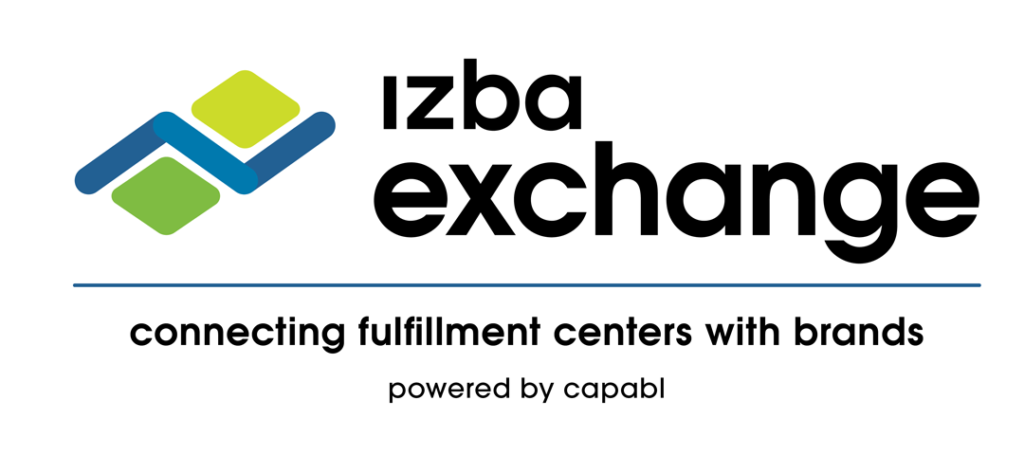
In today’s competitive business landscape, one of the key factors that can determine the success or failure of a company is its ability to establish and maintain strong relationships with its retailers. Retailers play a crucial role in connecting businesses with customers, and nurturing these relationships can lead to increased sales, brand loyalty, and long-term partnerships.
Understanding Retailer Needs
One of the first steps in nurturing retailer relationships is a deep understanding of their needs and challenges. This involves actively listening to retailers, conducting market research, and staying up to date with the latest industry trends.
Actively listening to retailers means not only hearing what they say, but also paying attention to their non-verbal cues and understanding the underlying motivations behind their words. It requires empathy and the ability to put oneself in the retailer’s shoes, to truly grasp their perspective and concerns.
Conducting market research is another crucial aspect of understanding retailer needs. This involves gathering data on consumer preferences, market trends, and competitor analysis. By analyzing this information, businesses can gain insights into what retailers are looking for in terms of products, pricing, and marketing strategies.
Staying up to date with the latest industry trends is essential for businesses to remain relevant and competitive. The retail landscape is constantly evolving, with new technologies, consumer behaviors, and market dynamics emerging. By keeping a finger on the pulse of the industry, businesses can anticipate changes and adapt their offerings to meet retailer needs.
By understanding what retailers are looking for, businesses can tailor their products, services, and marketing strategies to meet those needs, leading to increased satisfaction and improved collaboration.
For example, if retailers are seeking products that are eco-friendly and sustainable, businesses can invest in research and development to create environmentally conscious offerings. By aligning their products with retailer demands, businesses can not only attract more retailers but also appeal to environmentally conscious consumers.
Furthermore, understanding retailer needs allows businesses to anticipate potential challenges and provide solutions in advance. This proactive approach can help businesses differentiate themselves from competitors and establish a reputation for reliability.
For instance, if retailers are struggling with inventory management, businesses can develop innovative software solutions or provide training programs to help retailers optimize their inventory control. By addressing these challenges head-on, businesses can position themselves as trusted partners who go above and beyond to support retailers.
In conclusion, understanding retailer needs is a critical factor in building and maintaining successful retailer relationships. By actively listening, conducting market research, and staying up to date with industry trends, businesses can tailor their offerings to meet retailer demands and provide proactive solutions. This not only leads to increased satisfaction and improved collaboration but also helps businesses differentiate themselves from competitors and establish a reputation for reliability.
Effective Communication
Clear and effective communication is fundamental in building strong retailer relationships. Regular and transparent communication enables businesses and retailers to stay on the same page, discuss goals and expectations, and address any concerns or issues promptly.
One important aspect of effective communication is active listening. When engaging in a conversation with a retailer, it is essential to truly listen to their needs, concerns, and feedback. By actively listening, businesses can gain a deeper understanding of the retailer’s perspective and tailor their communication accordingly.
Furthermore, effective communication involves not only conveying information but also ensuring its comprehension. It is crucial to use clear and concise language, avoiding jargon or technical terms that may confuse the retailer. Businesses should strive to communicate in a way that is easily understood by all parties involved.
In addition to formal channels of communication, such as emails and meetings, informal means of communication can also play a significant role in building strong retailer relationships. Regular check-ins or informal conversations can provide an opportunity to connect on a more personal level. These casual interactions allow businesses and retailers to get to know each other better, fostering a sense of camaraderie and trust.
Moreover, effective communication involves being proactive rather than reactive. Instead of waiting for issues or concerns to arise, businesses should take the initiative to regularly reach out to retailers, seeking feedback and addressing any potential challenges. By being proactive, businesses can demonstrate their commitment to the retailer’s success and strengthen the partnership.
Another important aspect of effective communication is being open and transparent. Businesses should be honest and forthcoming in their communication, sharing relevant information and updates with retailers. This transparency helps to build trust and ensures that both parties are on the same page.
Lastly, it is essential to adapt the communication style to suit the retailer’s preferences. Some retailers may prefer more formal and structured communication, while others may appreciate a more casual and relaxed approach. By understanding and accommodating the retailer’s communication preferences, businesses can establish a rapport and create a comfortable environment for collaboration.
Reliability and Consistency
Retailers value reliability and consistency in their business partnerships. Businesses must deliver on their promises, and meet or exceed retailers’ expectations consistently. This includes delivering products on time, maintaining product quality, and providing accurate and up-to-date information about products and promotions.
When it comes to delivering products on time, retailers rely on businesses to have efficient supply chain management systems in place. This involves carefully planning and coordinating the movement of products from manufacturers to distribution centers, and finally to the retailers’ shelves. A reliable business partner will have a well-organized logistics network that ensures timely delivery, minimizing any disruptions or delays that could impact the availability of products to consumers.
Maintaining product quality is another crucial aspect of reliability and consistency. Retailers expect businesses to adhere to strict quality control standards to ensure that the products they receive are of the highest quality. This includes conducting regular inspections and tests to identify any potential defects or issues before the products reach the retailers. A reliable business partner will have robust quality assurance processes in place, guaranteeing that retailers can confidently offer their customers products that meet their expectations.
In addition to delivering products on time and maintaining product quality, businesses must also provide accurate and up-to-date information about their products and promotions. This includes detailed product descriptions, specifications, pricing, and availability. Retailers rely on this information to effectively market and sell the products to their customers. A reliable business partner will have efficient systems in place to ensure that retailers have access to real-time information, allowing them to make informed decisions and provide accurate information to their customers.
Furthermore, consistency in communication is essential for a successful business partnership. Retailers expect businesses to be responsive and proactive in their communication, promptly addressing any concerns or inquiries. This includes providing timely updates on order status, inventory levels, and any changes in product availability. By maintaining open and transparent communication channels, businesses can foster trust and strengthen their relationships with retailers.
Pricing consistency is another crucial aspect of reliability and consistency. Retailers rely on businesses to maintain consistent pricing across different channels and locations. Inconsistent pricing can lead to confusion among customers and erode retailers’ trust in the business partner. Therefore, businesses should have clear pricing policies and systems in place to ensure that retailers can confidently offer their customers competitive and consistent pricing.
Lastly, consistency in business practices is vital for building and maintaining strong retailer relationships. This includes adhering to agreed-upon terms and conditions, payment terms, and ethical business standards. Retailers value partners who consistently demonstrate integrity and professionalism in their interactions. By consistently upholding these practices, businesses can establish themselves as reliable and trustworthy partners in the eyes of retailers.
Building Trust
Trust is the foundation of any successful relationship, and retailer relationships are no exception. Businesses can build trust by being transparent, honest, and reliable. This involves being upfront about product availability, pricing, and any potential risks or limitations.
When businesses make mistakes or encounter challenges, it is important to take ownership and communicate openly with retailers. By being transparent about the situation and working collaboratively to find solutions, businesses can strengthen trust and demonstrate their commitment to the relationship.
Collaboration and Problem Solving
Successful retailer relationships involve collaboration and problem-solving. Businesses should actively seek retailers’ input and involve them in decision-making processes when appropriate. This can lead to improved product offerings, better marketing strategies, and innovative solutions to shared challenges.
When problems arise, businesses should approach them as opportunities for improvement rather than as obstacles. By working together with retailers to find solutions, businesses can foster a sense of partnership and demonstrate their commitment to mutual success.
Value-Added Services
Providing value-added services is a powerful way to differentiate a business from its competitors and strengthen retailer relationships. These services can include tailored training programs, promotional materials, marketing support, and after-sales support.
By supporting retailers in their efforts to sell a business’s products or services, businesses can demonstrate their commitment to their success. This can lead to increased retailer loyalty, better product positioning, and ultimately, increased sales for both parties.
Long-Term Partnerships
Nurturing retailer relationships should not be viewed as a short-term transactional approach, but rather as a long-term commitment. Building mutually beneficial partnerships requires investment in time, effort, and resources.
Businesses should focus on building strong foundations, consistently delivering value, and continuously seeking opportunities for growth and improvement. By establishing long-term partnerships, businesses can benefit from increased loyalty, improved access to market insights, and a competitive advantage over businesses with more transactional relationships.
Maximizing Mutual Benefits in Retailer Relationships
Successful retailer relationships are built on the principle of mutual benefits. Businesses must ensure that the partnership creates value for both parties. This involves regularly evaluating the relationship, discussing performance indicators and metrics, and seeking feedback from retailers.
By understanding the retailer’s goals and challenges and aligning them with the business’s objectives, businesses can identify areas for improvement and optimize the relationship. This can lead to increased efficiency, reduced costs, and improved customer satisfaction.
Creating Win-Win Situations with Retailers
Nurturing retailer relationships involves creating win-win situations where both parties benefit. Businesses should strive to understand retailers’ goals and find ways to support their growth and success.
By offering incentives, such as volume discounts, co-marketing opportunities, or exclusive product offerings, businesses can motivate retailers to invest in promoting their products and services. This ultimately benefits both parties by driving sales and increasing market share.
The Importance of Regularly Evaluating Retailer Relationships
Nurturing retailer relationships is an ongoing process that requires continuous evaluation and improvement. Businesses should regularly assess the performance and effectiveness of their retailer relationships.
This evaluation can be done through feedback surveys, performance metrics, or regular meetings with retailers. By identifying areas for improvement and addressing any challenges or concerns proactively, businesses can ensure that their retailer relationships remain strong and mutually beneficial.
Cultivating a Positive Reputation among Retailers
A positive reputation among retailers is invaluable for businesses. Word-of-mouth recommendations from satisfied retailers can enhance the business’s credibility and attract new retailer partnerships.
Businesses should strive to deliver exceptional service, consistently exceed expectations, and foster a culture of trust and collaboration. By cultivating a positive reputation among retailers, businesses can position themselves as preferred partners and gain a competitive edge in the marketplace.
Conclusion
Nurturing retailer relationships is essential for business success. By understanding retailer needs, effectively communicating, building trust, collaborating, and consistently delivering value, businesses can cultivate strong and mutually beneficial partnerships with retailers. These relationships can lead to increased sales, brand loyalty, a positive reputation, and long-term success in the competitive retail landscape.





